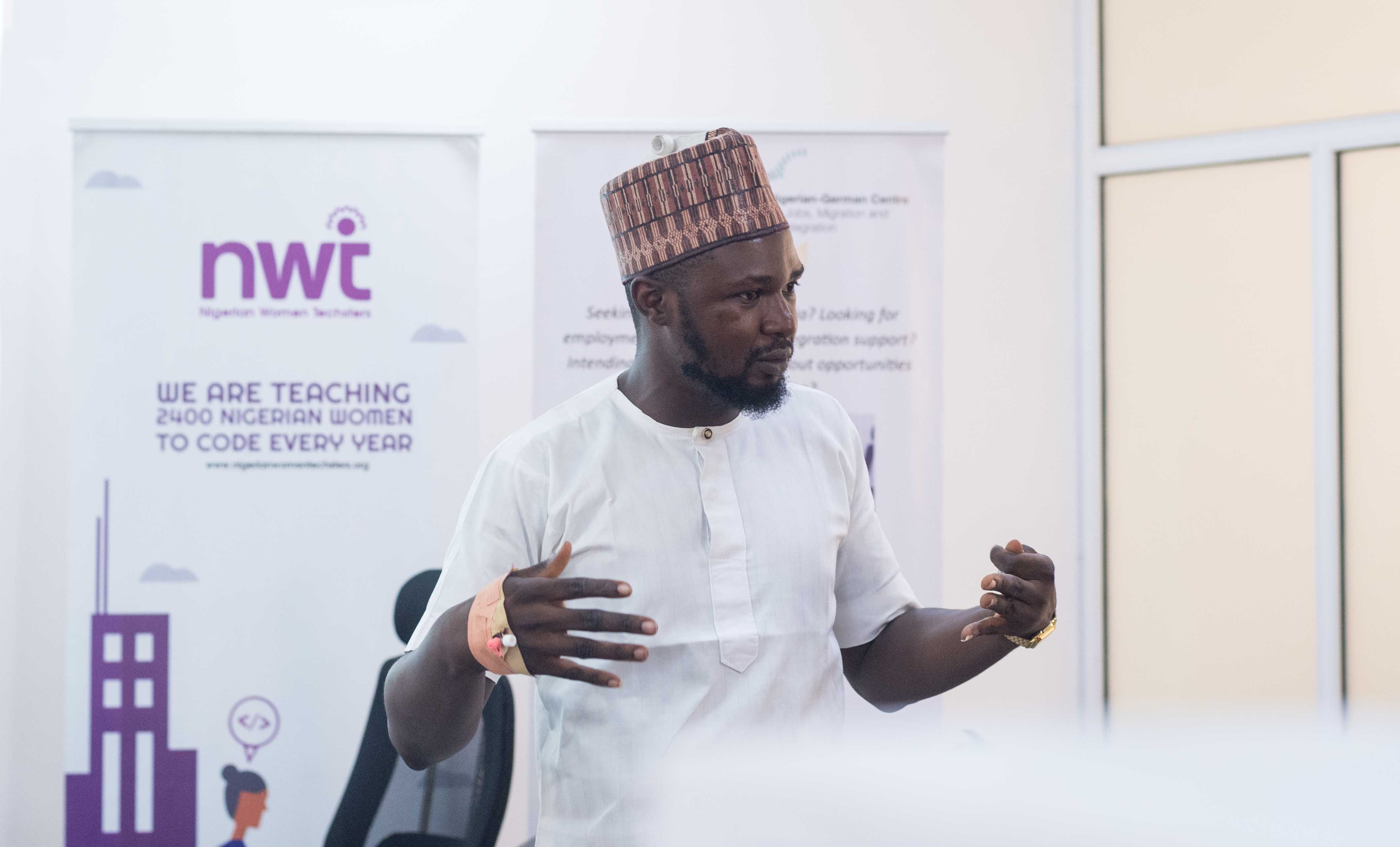 Back
Back
DIGITAL SKILLS AS A TOOL TO UNLOCK THE AFRICAN ECONOMY
| April 23, 2020

Working on the Nigerian Women Techsters (NWT) Initiative has exposed me to the limitless opportunities that can emerge from empowering women and the importance of consciously creating enabling environments for programs that impact communities through human capital development.
My name is Terkimbi Joshua and I am passionate about leadership, social impact, and personal development in young people.
2018, I had the privilege of joining the Tech4Dev team as the NWT Program Lead, an opportunity that would later me give me insight into the problems women face within the community and the workplace. With a dauntless team, we were going to be employing our solution as a tool to close the gap between men and women in the technology space, provide digital skills opportunities for women to empower themselves, grow their financial capacity through reduced poverty levels and in turn, impact the economy.
Our aim was to provide an opportunity for women to learn the requisite skills needed to build a career in tech by offering classes in 3 broad areas; Web and Mobile Development, Game Development and Embedded Systems, as well as online classes, to teach soft skills. The training was spread over a 12-week period of weekend classes and online training to enable and accommodate all classes of women (Nursing mothers, recent graduates, school leavers, market women, etc.). This training was free of charge and funded by our most supportive partner, Microsoft Philanthropies.
It was exciting to see these women share smiles and express delight after writing their first lines of code. This showed that learning to code isn’t as difficult as perceived and anybody with an interest and will to commit time to learn could become proficient. We were not just giving these women digital skills, we were also ensuring the right values, and ethics were adopted towards learning and work-life balance
Post-training, we took a step further, collaborated with developmental partners like GIZ and other tech organizations to provide experiential learning experiences in form of internships, mentorships, and advisory support for individuals who were building products or just furthering to advanced learning opportunities. This phase proved to be the most impactful phase for these women, as it allowed them to use the skills they had learned.
We have had so many beautiful stories come out of this experience; from Mashudat Bello Mojeed, who never knew so much about operating a computer, to becoming a coding tutor for her kids at home, to Chioma Charleen who wasn't sure if she had studied the right course in school, signing up to learn embedded systems and attempting to build an app to solve waste management issues, and to go from just wanting to learn a few lines of code to getting a job with a multinational company. These stories have kept us going and striving to do even more.
Looking back at this journey, at what we have achieved and the possibilities that exist, I must say that we have to become more intentional, in our approach by integrating digital skills into learning curriculums for schools and creating access to opportunities for every young person out there to improve and build capacity.
As we expand this initiative to train 5 million women in deep tech skills across Africa by 2030, I am more excited about the chain reaction it would cause in the tech sector and the African economy. Yesterday, we were changing the world through politics and global policies but today, we are rapidly changing the world through technology innovations and human capital development. To get the impact we desire across all our communities, the African woman must be at the center of the conversation.